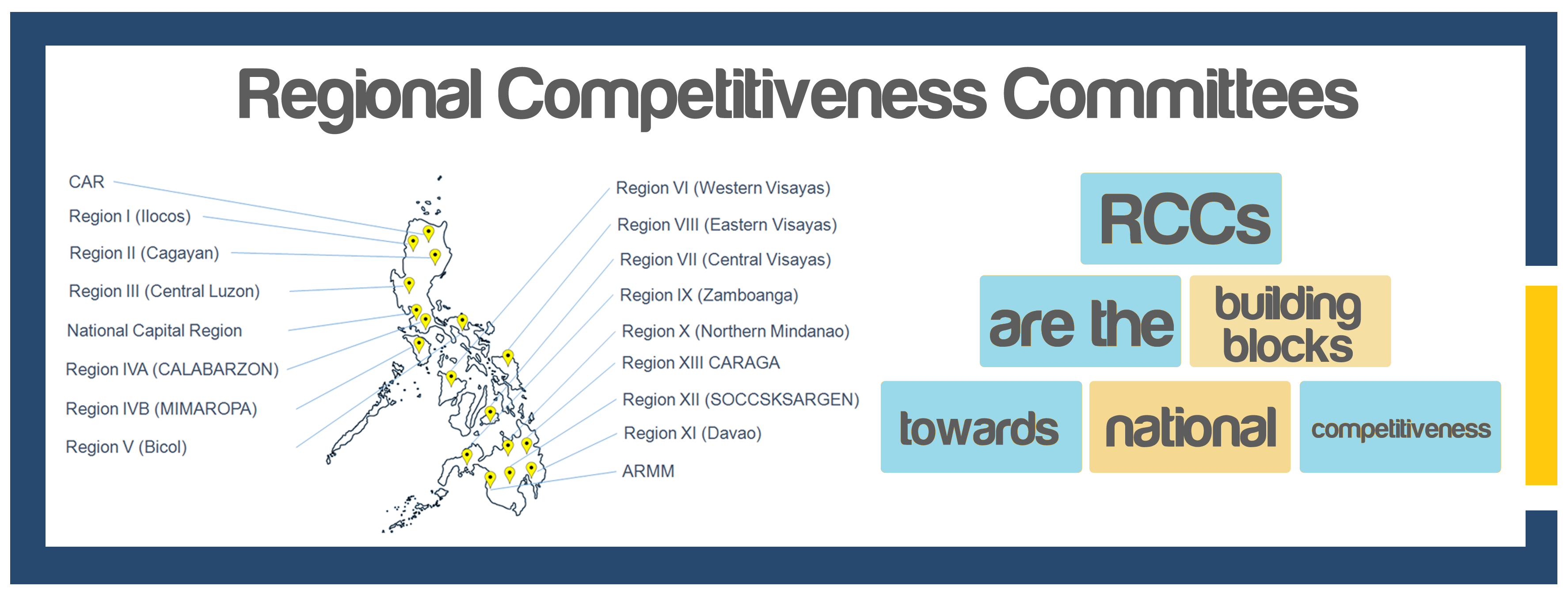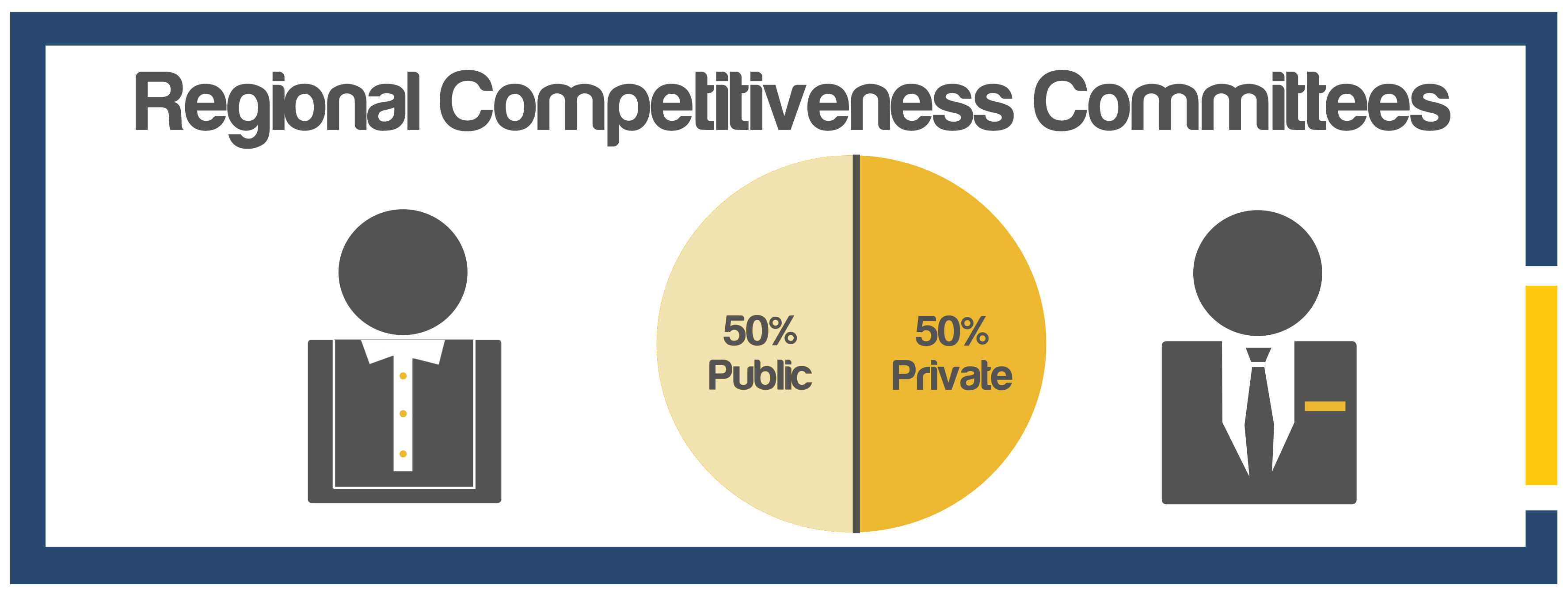About the RCC
A. OVERVIEW
Building local competitiveness is critical to enhancing long-term national competitiveness. In pursuit of this goal, the National Competitiveness Council encouraged the creation of Regional Competitiveness Committees (RCCs) across the Philippines. As one of the building blocks for national competitiveness, the RCCs are tasked to:
- Regularly measure local competitiveness indicators
- Formulate programs to improve competitiveness
- Engage in investment promotion activities to attract investors and create new jobs

B. STRUCTURE
Each RCC is composed of members from the public sector, private sector and academe. It should have one chairman from the public sector and a co-chairman from the private sector.
- The public sector is headed by an official from the Regional Development Council, Local Government Unit, Department of Trade and Industry, or other government agencies.
- The private sector may be headed by a representative of a local business club or chamber of commerce.
- Academe members may be recruited from reputable universities.

Currently, there are 16 Regional Competitiveness Committees across the country. Each RCC works closely with the National Competitiveness Council to execute activities aimed to promote reforms and growth at the regional level. These activities contribute to the overall competitiveness of the regions, which in turn contribute to diversification of investment and job opportunities, creation of new wealth, growth of middle class in different parts of the country, and to the overall attractiveness of the country as an investment site.